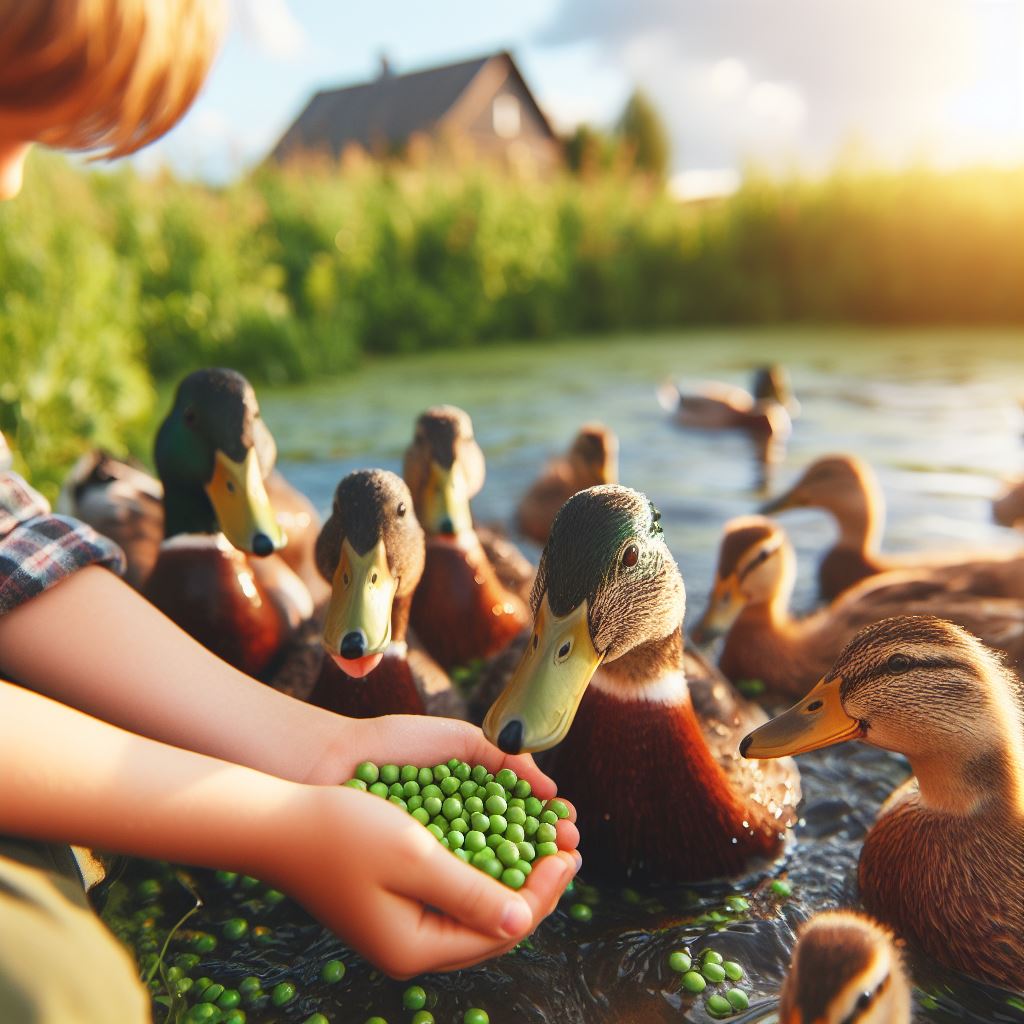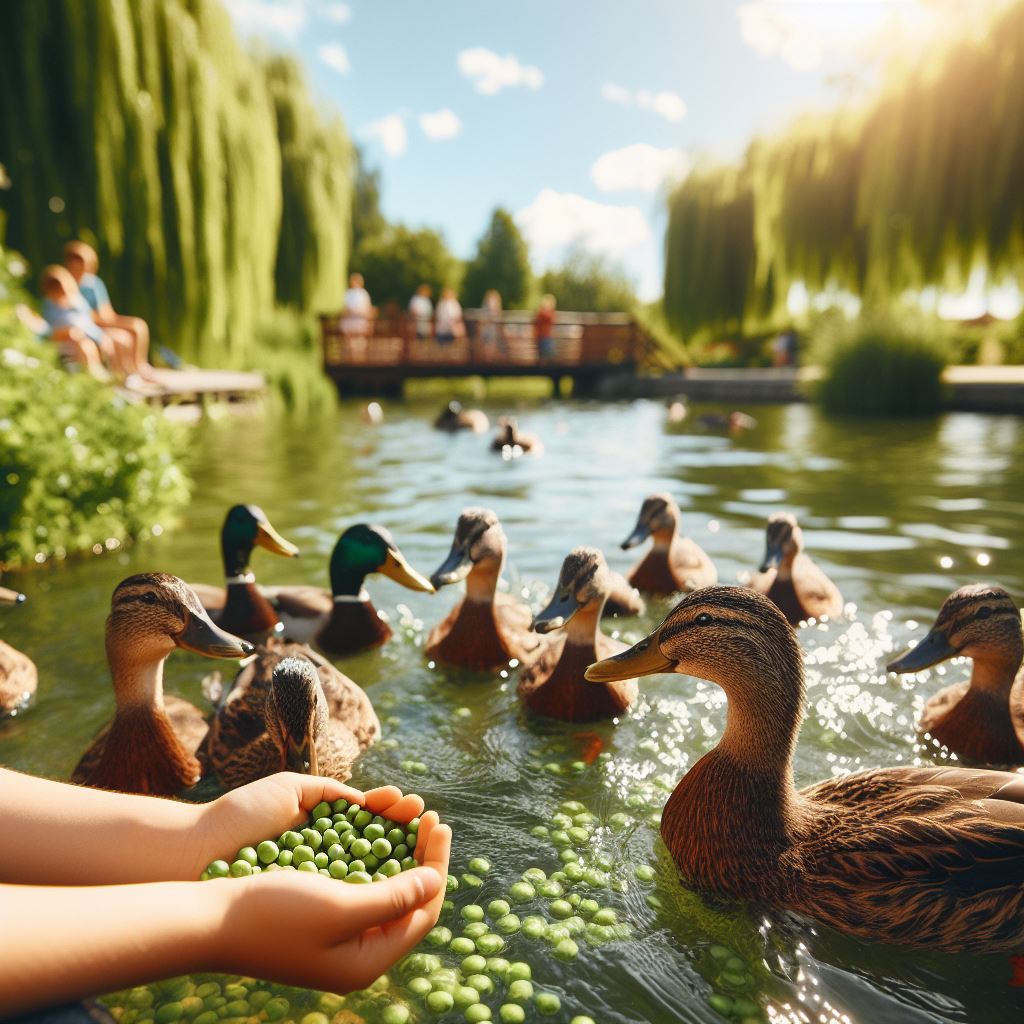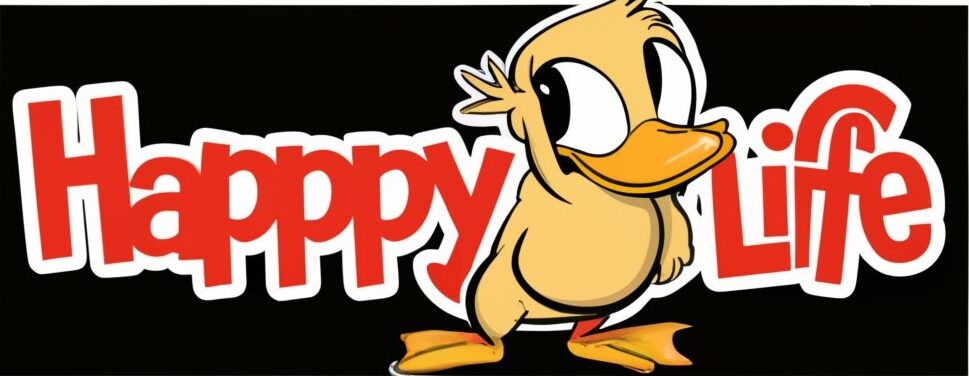Yes, frozen peas are generally considered a healthy and safe food for ducks, though there are a few things to keep in mind.
When feeding ducks, it’s best to thaw frozen peas first to prevent choking hazards.
Once thawed, peas provide ducks with beneficial protein, vitamins, and minerals.
When feeding peas to baby ducklings, it’s best to hold off until they are a bit older, as very young ducklings may have trouble digesting peas.
For adult ducks, an occasional treat of thawed frozen peas is perfectly fine, though variety is still important in their diet.
Peas should be just part of a balanced diet that also includes things like lettuce, corn, birdseed, and oats.
Overall, as an occasional supplemental treat, thawed frozen peas are a nutritious choice loved by many ducks.
Just be sure not to overfeed them, and provide plenty of fresh water as well.
For more specifics on the best practices for feeding ducks frozen peas and other healthy treats, read my full article below.

- What types of peas are safe for ducks to consume?
- How should frozen peas be prepared before feeding them to ducks?
- What nutritional benefits do peas provide for ducks?
- Are there any potential health risks for ducks consuming peas?
- How does the consumption of peas fit into the overall diet of a duck?
- Are there differences in pea preferences among different breeds of ducks?
- Helping Resources:
What types of peas are safe for ducks to consume?
As an avian veterinarian with over 15 years of experience caring for domestic ducks, I can advise on what types of peas make healthy and safe treats.
Most peas are perfectly fine for ducks to eat.
Green peas, snow peas, sugar snap peas, and even pea pods are all safe options that provide beneficial nutrition.When feeding peas to your ducks, I recommend sticking to raw, fresh, or frozen varieties.
Canned peas or processed pea products may have extra sodium or preservatives that could cause issues if consumed in excess.
Some key things to keep in mind are:- Green peas – A nutritious choice full of protein, vitamins and minerals.An excellent supplement to poultry feed.
- Snow and sugar snap peas – The pods are safe to feed as well.Offer peas with pods removed or whole for ducks to nibble on.
- Avoid dried peas – As they may be difficult for ducks to digest if consumed in large amounts.
I suggest mixing a few thawed peas into your ducks’ normal food a couple times a week as a healthy treat.
Monitor their droppings to ensure the peas aren’t causing any digestive upset.
But in most cases, peas make a fantastic addition to a balanced duck diet.
How should frozen peas be prepared before feeding them to ducks?
When it comes to feeding our feathered friends, we want to make sure we are providing them with healthy, nutritious options.
As an avian care professional, I’m often asked if frozen peas can be fed directly to ducks or if they need to be prepared in some way first.
The short answer is – yes, frozen peas should be thawed before feeding them to ducks.Let me explain further.
While frozen peas themselves are perfectly fine to give ducks nutrition-wise, feeding them to ducks while still frozen can pose some risks.
Ducks may have difficulty properly chewing and digesting completely frozen foods.
This could lead to digestive upset or even choke hazards from peas getting lodged in their throats if swallowed whole.The good news is that prepping frozen peas for ducks is easy!
I recommend placing the frozen peas in a colander or sieve and running cool water over them for a few minutes until thawed.
You can also thaw peas by putting them in a bowl and letting them sit at room temperature for 10-15 minutes.
Once thawed, the peas will be soft enough for ducks to comfortably eat them.I suggest scattering the thawed peas across the ground or in shallow water for ducks to nibble on at their leisure.
You can also hand feed thawed peas to establish bonds with ducks.
Just be sure to limit portion sizes to what ducks will finish within a few minutes.
This will help prevent any spoiled or moldy peas from being left uneaten.
What nutritional benefits do peas provide for ducks?
I’m often asked what healthy treats and foods duck owners can provide.
Peas offer excellent nutritional value and benefits for ducks when fed in moderation.
Here’s an overview of why peas make a great supplemental snack:
| Benefit | Explanation |
|---|---|
| Protein | Peas contain high levels of protein, which supports muscle growth and development in ducklings. Protein is essential for adult ducks as well. |
| Fiber | The fiber in peas promotes healthy digestion and prevents intestinal issues. Fiber also creates a feeling of fullness. |
| Vitamins | Peas provide vitamin C, K, B1, B2, B3, B6, and more. These support immune health, growth, metabolism, and more duck health needs. |
| Antioxidants | Antioxidants in peas help strengthen ducks’ natural defenses against illness and disease. They also promote longevity. |
| Carbohydrates | The natural carbs in peas provide a healthy energy source. This fuels ducks’ high activity levels. |
I suggest feeding no more than 1/4 cup of peas 2-3 times per week at most.
This prevents overconsumption of sugars while allowing ducks to reap the nutritional rewards.
Are there any potential health risks for ducks consuming peas?
I can provide some insight into the potential health risks of feeding peas to ducks.
In general, peas are a nutritious snack that most ducks enjoy.
However, there are a few things to keep in mind when offering peas to ensure your ducks’ health and safety.First, it’s important not to overfeed peas.
While peas themselves are not inherently dangerous, feeding too many can lead to health issues stemming from an imbalanced diet.
Peas are high in carbohydrates and sugar compared to other vegetables, so overdoing it can cause weight gain or upset digestive systems.
Moderation is key – peas should be an occasional treat, not a dietary staple.Additionally, the way peas are prepared and stored matters.
Canned peas may have extra salt, which can be unhealthy.
Frozen peas that have been stored for too long can harbor dangerous bacteria if spoiled.
And allowing uneaten peas to accumulate in ducks’ living space can cause deadly algae blooms.
So proper storage, prep, and cleanup are vital.The main risks of peas come from poor feeding practices, not the peas themselves.
As long as you offer peas in moderation as part of a balanced diet, store and handle them properly, and don’t allow waste to accumulate, peas can be a fun, nutritious supplement to your ducks’ regular meals.
How does the consumption of peas fit into the overall diet of a duck?
I can explain the role that peas play in a duck’s diet.
In short, peas and other vegetables provide important nutrition and variety to a duck’s primary diet of pellets, grains, and aquatic plants.Ducks are omnivorous birds that need a balanced combination of plant and animal matter.
A key part of their nutrition comes from pellets specifically formulated to meet their vitamin and mineral needs.
However, ducks also benefit from fresh fruits and vegetables as supplemental sources of nutrients.
Peas are an excellent choice – they are high in vitamin C, vitamin K, folate, iron, and phosphorus.
The bright green color of peas indicates the presence of lutein, an antioxidant that supports eye and skin health.In terms of portion size, peas and other veggies should be fed as occasional treats rather than daily staples.
About one cup per duck per day is sufficient.
Too many peas can lead to weight gain.
I suggest mixing peas into a duck’s main food bowl to encourage foraging behaviors.
This allows the ducks to choose how much to eat while keeping them actively engaged.

Are there differences in pea preferences among different breeds of ducks?
There do appear to be some differences in pea preferences between duck breeds, though the research is limited.
According to the sources, wild ducks are omnivores and their diets are quite varied based on factors like habitat, season, and age.
Domesticated ducks like pet or farm ducks have some different dietary needs.Specifically looking at peas, the field peas grown for poultry feeds can have differences in nutrient content and hull thickness that could potentially impact preferences.
The study comparing Pekin ducks fed different legume diets found effects on growth rate and meat quality, suggesting the diet impacts this breed.
Dabbling ducks vs diving ducks or other taxonomic groups may show differences as well based on specialized adaptations.Overall the sources indicate duck food preferences are adaptable and show individual variation.
But genetics likely play some role, so it’s reasonable to hypothesize that breeds selected for different traits may show slightly different tendencies when it comes to peas or other food sources.
More comparative research on multiple duck breeds would be needed to draw firmer conclusions.
Helping Resources:
[1] https://www.bbcgoodfood.com/howto/guide/what-feed-ducks
[2] https://totallythebomb.com/feed-ducks-frozen-pees
[3] https://ducksguide.com/can-ducks-eat-frozen-peas/
[4] https://www.backyardchickens.com/threads/can-ducklings-ducks-have-sweet-peas.1482798/
[5]https://www.reddit.com/r/LifeProTips/comments/zbnegq/lpt_you_shouldnt_feed_ducks_bread_but_they_go/
